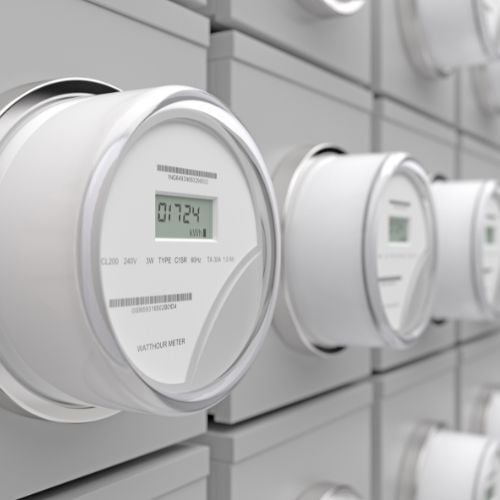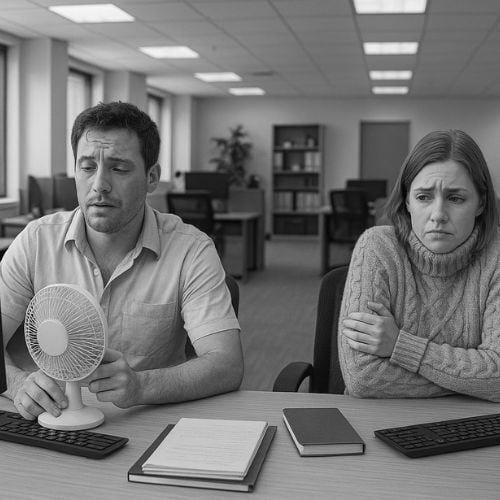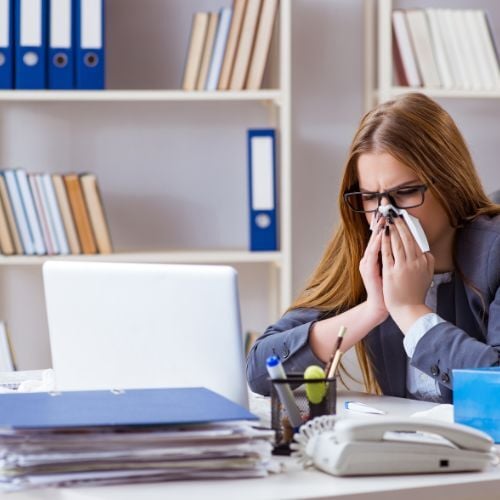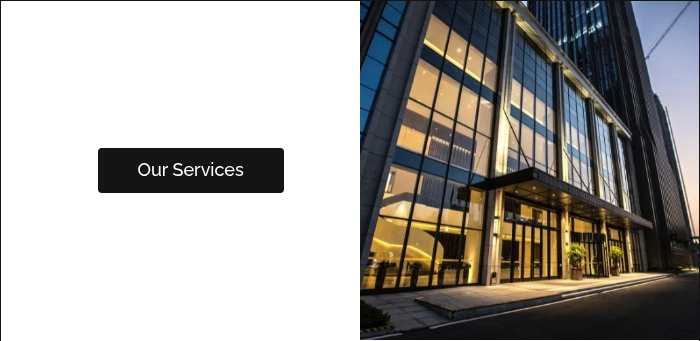When you're running a business, maintaining a comfortable work environment for employees, customers, and clients isn't just about comfort—it's about keeping your doors open and operations running smoothly.
A failing commercial HVAC system can force businesses to shut down temporarily, resulting in lost revenue, frustrated customers, and decreased employee productivity.
The good news is that most major commercial air conditioning failures don't happen overnight. By recognizing early warning signs, you can address minor issues at their roots before they become major disruptions that threaten your business continuity.
Understanding these warning signs and taking proactive action can save your business thousands of dollars in emergency repairs, prevent unexpected downtime, and ensure your commercial property maintains optimal indoor air quality year-round.

Sign #1: Rising Energy Bills Without Increased Usage
One of the most telling indicators that your commercial AC system needs professional attention is an unexpected spike in your monthly energy expenses when your business operations and usage patterns remain consistent.
If you notice your utility bills climbing steadily without any corresponding increase in building occupancy or equipment usage, your HVAC system is likely working harder than it should to maintain comfortable temperatures.
This inefficiency typically stems from several underlying issues. Worn-out components force your commercial HVAC equipment to consume more electricity to achieve the same cooling output.
Refrigerant leaks reduce system efficiency dramatically, causing compressors to run longer cycles.
Dirty air filters restrict airflow, making your system work overtime to circulate conditioned air throughout your facility.
Dirty evaporator coils and condenser coils reduce heat transfer efficiency, while failing motors and fans draw excessive power.
The business impact extends beyond just wasting money on excessive energy costs. As system efficiency continues to decline, you're essentially paying more for less comfort while accelerating wear and tear on expensive commercial HVAC components.
This creates a downward spiral where energy costs rise while system reliability decreases.
Experienced HVAC technicians can evaluate your current equipment to identify exactly what's costing your business significant money.
Through comprehensive energy audits and system diagnostics, professionals can pinpoint inefficiencies and recommend cost-effective solutions that restore optimal performance while reducing operational expenses.

Sign #2: Inconsistent Temperatures Throughout Your Building
Temperature inconsistencies across different areas of your commercial property signal serious problems with your HVAC system's ability to distribute conditioned air effectively.
When certain zones are too hot while others are too cold, or when actual temperatures don't match thermostat settings, your system is struggling to maintain proper climate control.
These temperature variations often result from problems with building automation systems, faulty thermostats, ductwork leaks or blockages, improper airflow distribution, or early signs of component failure in specific zones.
In larger commercial buildings, zone control issues can indicate problems with dampers, variable air volume (VAV) boxes, or central air handling units.
The business impact of inconsistent temperatures extends far beyond simple discomfort. Employee productivity suffers when workspace conditions are too hot or too cold.
Customer satisfaction decreases in retail environments where shopping comfort is compromised. In office buildings, temperature complaints become a constant distraction for facility managers and building occupants.
HVAC experts can inspect your entire ductwork system, rebalance airflow distribution, calibrate thermostats and building controls, and identify underlying system problems that require immediate attention.
Professional technicians utilize specialized tools to measure airflow, temperature differentials, and system pressures, ensuring uniform comfort throughout your facility.

Sign #3: Strange Noises or Unusual Sounds
Commercial HVAC systems should operate relatively quietly during normal operation. When you start hearing grinding, rattling, squealing, banging, screeching, or clanging sounds when your AC unit turns on or operates, these audible warnings indicate mechanical problems that require immediate professional attention.
Different sounds point to specific issues within your commercial air conditioning system. Grinding noises often indicate worn motor bearings or damaged compressor components.
Rattling sounds suggest loose panels, brackets, or internal components. Squealing typically signals worn belts, while banging or clanging noises can indicate loose or broken parts that pose safety risks.
These mechanical problems represent more than just annoying background noise. Strange sounds signal that component wear and tear has progressed to the point where a complete breakdown is around the corner.
Ignoring these warning signs often leads to catastrophic failures during peak business hours when you can least afford system downtime.
Immediate inspection by experienced technicians can identify and replace damaged components before complete system failure occurs.
Professional maintenance teams carry common replacement parts and can often resolve noise issues during the same service call, preventing costly emergency repairs and business disruptions.
Sign #4: Frequent Cycling (Short Cycling)
Short cycling occurs when your HVAC system turns on and off more frequently than usual for brief periods without successfully maintaining a comfortable indoor temperature range. Normal commercial AC systems should run for extended periods to reach desired temperatures, then cycle off until cooling is needed again.
Frequent cycling typically results from thermostat malfunctions, severely clogged air filters, frozen evaporator coils, improper refrigerant charge, oversized equipment, or other underlying system issues.
In buildings with sophisticated building automation systems, short cycling can indicate problems with control sequences or sensor calibration.
The business impact of short cycling extends beyond immediate comfort concerns. This operational pattern places significant stress on HVAC components like compressors, motors, and contactors.
Starting and stopping frequently accelerates wear and tear, severely shortening equipment lifespan and increasing maintenance costs. Short cycling also wastes energy since systems consume more power during startup sequences.
Professional maintenance can identify and fix short cycling issues through comprehensive system diagnostics.
Modern building automation systems can be configured to monitor and flag this problem automatically, allowing facility managers to address issues before they cause equipment damage.

Sign #5: Poor Air Quality and Unusual Odors
Commercial buildings require excellent indoor air quality to maintain healthy, productive work environments. When you notice musty odors indicating mold or mildew growth, burning or electrical smells, excessive moisture on windows and walls, or decreased air filtration effectiveness, your HVAC system may be compromising indoor air quality.
Poor air quality often results from mold growth in ductwork or air handling units, overheating electrical components, wiring issues, or humidity control problems that can cause extensive building damage. Inadequate ventilation, dirty air filters, and contaminated ductwork can circulate pollutants throughout your facility.
The business impact includes serious health and safety risks for building occupants, potential fire hazards from overheating components, and damage to sensitive equipment and building infrastructure.
Poor indoor air quality can also violate building codes and create liability issues for business owners.
Professional attention is essential to eliminate safety risks and restore proper air quality and humidity control.
HVAC experts can inspect ductwork, replace contaminated components, upgrade filtration systems, and implement humidity control solutions that protect both occupants and building infrastructure.
The Value of Professional Maintenance
Recognizing these warning signs early allows you to address problems before they escalate into major business disruptions. Experienced technicians can arrive within hours during emergencies and provide year-round coverage through comprehensive maintenance agreements.
Annual tune-ups and inspections ensure your commercial AC systems continue to function properly for the foreseeable future while providing numerous benefits, including rapid emergency response, priority scheduling, and discounts across all services.
With over 130 years of HVAC expertise, our professional maintenance teams can keep your operations running smoothly while maximizing your equipment investment.
Don't wait for complete system failure to address these warning signs.
Schedule a professional property inspection today and consider a maintenance agreement that provides preferential treatment during critical situations, ensuring your business stays comfortable and operational year-round.


